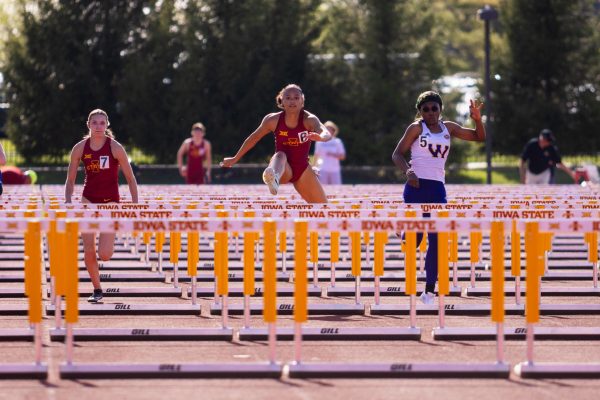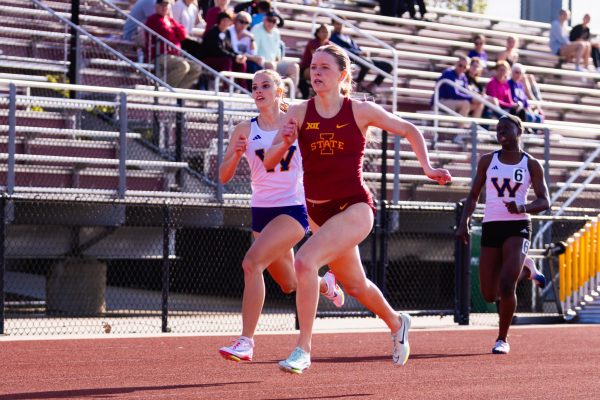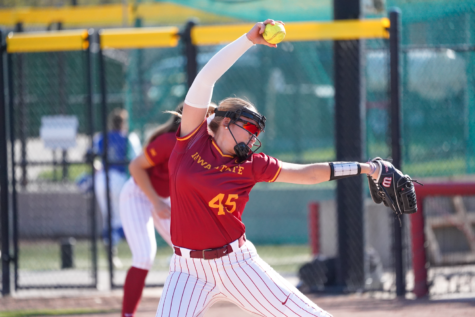Stadium parking to change for increased security, Cyclone Club
July 1, 2003
ISU athletics officials cite security issues and increasing membership in the National Cyclone Club as the reasons for a change in football parking policy that may keep students and the general public from the area immediately surrounding Jack Trice Stadium before football games.
Tony Borich, sophomore in community and regional planning, said Monday he has corresponded with ISU athletics director Bruce Van De Velde and received assurance that the situation may be reconsidered to allow some paved space near the stadium for students and the general public.
According to a letter sent last week by the athletic department to National Cyclone Club members, parking for the general public in 2003 is slated to be located to the south and east of Elwood Drive and along South 16th Street.
Membership in the National Cyclone Club is divided into various levels based on annual giving. Priority parking for football and men’s basketball has also been distributed in the past based on a donor’s annual gift.
For example, members of the Gold Club donate at least $1,000 per year and will be granted football parking in parking lots D-4, S-6 and S-5 in 2003.
The 10 parking lots around the stadium, along with the Iowa State Center parking lots between Hilton Coliseum and the stadium, will be fully reserved for National Cyclone Club members, gameday operations, media and handicapped parking, according to athletic department officials.
“The first priority would be security,” said Craig Rueschhoff, a development intern with the National Cyclone Club, which is a division of the athletic department.
“The best way for us to [provide security] was to open [the stadium lots] up to National Cyclone Club members only,” he said.
Rueschhoff said an increase in National Cyclone Club memberships also played a role in the decision-making process. “Last year at this time there were just more than 4,700 [members],” he said. “This year there are more than 5,200.”
In 2002, Lots S-4, S-5, S-6, S-7 and S-8, the paved lots east of the stadium, were available for general public parking at a rate of $7 per car. Student tailgating usually took place in those lots as well, because they were the closest public lots to the stadium.
“I understand the fact that they want to encourage people to donate to athletics,” Borich said. “They need to be respectful of what students want.”
Borich said he received an email response from Van De Velde that said he would look at the situation again and possibly include some space for students near Jack Trice Stadium.
“I was pretty happy with the response that [he] gave me,” Borich said. “I thought it was fair to everyone.”
Some students said they will be disappointed if they are forced to park and tailgate farther away.
“I just think it’s too bad, because I’ve been going to tailgates for four years now,” said Joe Fox, senior in marketing.
“I know it was a good time, and I think that it draws a lot of attention to our football team and gives us a lot of notability of being a good fan base. So I think we’re going to lose that,” he said.
Some students worried about the safety of students crossing Elwood Drive as stadium traffic backs up on a game day.
“That’s one thing I always look forward to,” said Adam Douglas, junior in engineering. “[B]eing in that area, partying over there and tailgating, [having a] good time and just walk and go inside and come back out, and now it’s going to be a lot different.”
Jerry Stewart, director of the ISU Police said many things would need to be worked out with the new plan.
He said the ISU Police have considered the possibility that spreading out students and the public in the stadium area may make it more difficult for officers to control the area.
“That’s an unknown at this time,” he said. Stewart said it was important to have some control over the people entering the stadium parking lots.
“National and state recommendations are to control parking as much as possible at large venues,” he said.
Stewart also said the football team’s increasing success, leading to increased attendance, and the rise in National Cyclone Club memberships had made the move likely for years. “It was inevitable that public parking would be driven farther out,” he said.
















